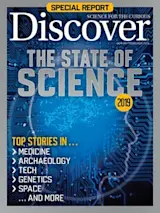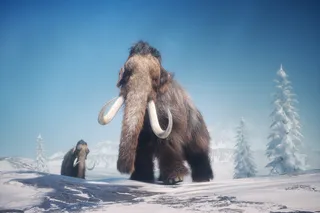1. Across the nation, we were deeply divided ... between those who heard “laurel” in a sound clip and those who insisted it was “yanny.” The actual word in the audio file, circulated on social media in May, was “laurel.” (Sorry, Team Yanny.)
2. The word perceived in the low-quality recording of an online pronunciation guide depended on factors such as whether a listener’s hearing was biased toward low or high frequencies, according to a Current Biology study published in July.
3. Such auditory illusions are essentially our brains trying to make sense of ambiguous information. Want a little more brain ambiguity? Paleoanthropologists are rethinking a basic idea about how our gray matter evolved.
4. Modern human brains are exceptionally large and complex, and researchers assumed size came first, or at least in tandem with the development of sophisticated cerebral structures.
5. But in May, in the journal PNAS, a ...















